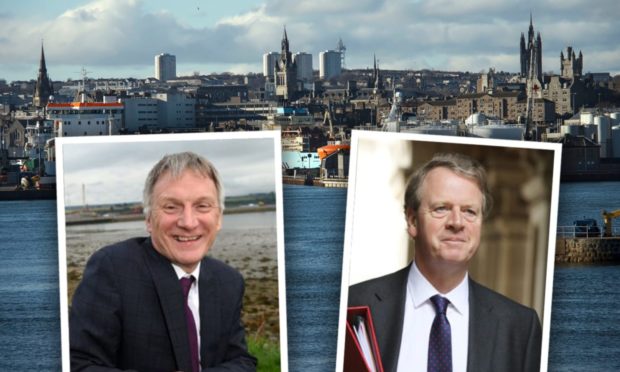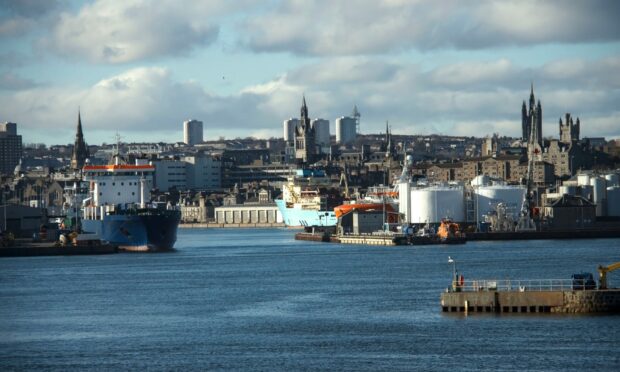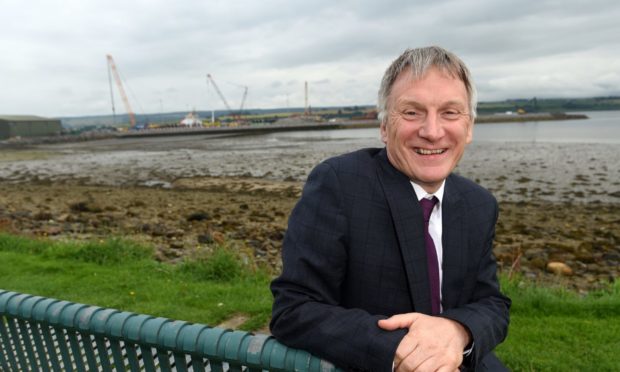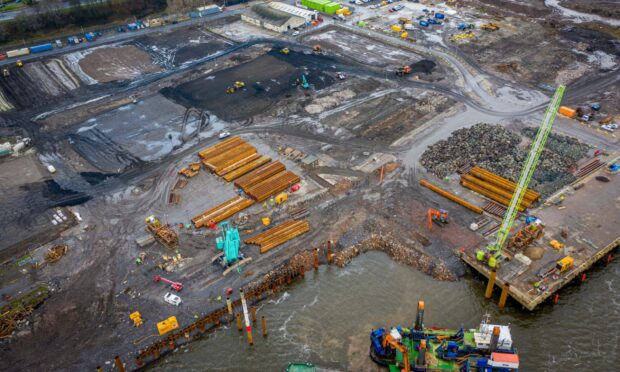A port with special tax status will be set up in Scotland directly by the UK government, after talks finally broke down between Holyrood and Westminster.
The significant move scuppers the original joint plan and is certain to raise questions – and a political row – about the impact on devolution.
Business leaders said the failure to work together was “incredibly disappointing”.
It comes as the SNP administration backed out and set up their own separate proposals, accusing Boris Johnson of failing to provide guarantees over fair pay and set-up funding.
Freeports are internationally recognised sites usually set up at harbours or airports with the ability to defer tax until products are moved on.
Port authorities already bidding for the status are Cromarty Firth, Aberdeen, Peterhead, Dundee, Grangemouth and Leith – all hoping to create and protect jobs in the regional economy. Prestwick airport also expressed an interest.
Talks have dragged on for months while work gets under way in England.
‘State sponsored tax dodging’
Holyrood does not control the tax powers needed to match the UK Government’s plan.
But Westminster does not control some devolved taxes, such as land and buildings levies.
SNP Government trade minister Ivan McKee had been moving to an agreement, but could not get Scottish Secretary Alister Jack to adopt red-line requests.
In a move seen by Tories as a warning sign, the SNP’s new Green coalition partners previously described the policy as “state sponsored tax dodging with no place in a progressive Scotland”.
These are central tenets of Scotland’s future economy and principles we cannot compromise on.”
– Scottish trade minister Ivan McKee
In a statement on Friday morning, Mr McKee announced Scotland will now go it alone with a different focus on “fair work” and carbon emissions.
“These are central tenets of Scotland’s future economy and principles we cannot compromise on,” he said.
“The UK Government’s offer does not reflect this, provide fair set-up funding or, indeed, recognise the vital role the real living wage plays in secure pay and employment contracts.
“It is difficult to comprehend why UK ministers would seek to dilute a strong commitment to fair work, including payment of the real living wage, when seeking to implement their freeport policy in Scotland.”
Instead, the Scottish Government will now draw up their own “green ports” scheme.
What does it mean for devolution?
One UK Government source said the “genie is out of the bottle” – suggesting it could have longer term implications for direct UK intervention in infrastructure normally looked after by Holyrood.
UK ministers will now look for councils for talks on waiving business rates, potentially even offering Treasury sweeteners, it has been suggested.
Tories will also now feel emboldened about moves to make direct investment in other areas, including major trunk road projects.
What happens to freeports in Scotland?
The UK Government intends to move quickly with a bidding process.
It is expected there will be just one freeport, which could be on track by the end of the year.
The UK Scottish Secretary said he’s made a “very generous offer” including tax relief of up to £120 million over five years at an originally intended two sites.
It included capital allowances, employers’ national insurance contributions and customs benefits set to be exempt from tax.
In a letter to Mr McKee earlier this month, Mr Jack wrote: “We have an outstanding opportunity before us to work together to deliver a programme with huge potential to grow the Scottish economy and create high-quality jobs.
“I believe the people of Scotland will be unforgiving if we fail to seize it.”
What do business leaders think?
Dr Liz Cameron, chief executive of the Scottish Chambers of Commerce, said: “This is an incredibly disappointing development and it is highly regrettable that a shared agreement on the design and implementation of a freeports model for Scotland could not be reached between the Scottish and UK Governments.
“This situation should have been avoided and many businesses will view the lack of cooperation and partnership with dismay.”
The UK Government plan will be welcomed by ports who do not want any more delay, she said. She called for urgent clarity on what the green ports model will look like.



